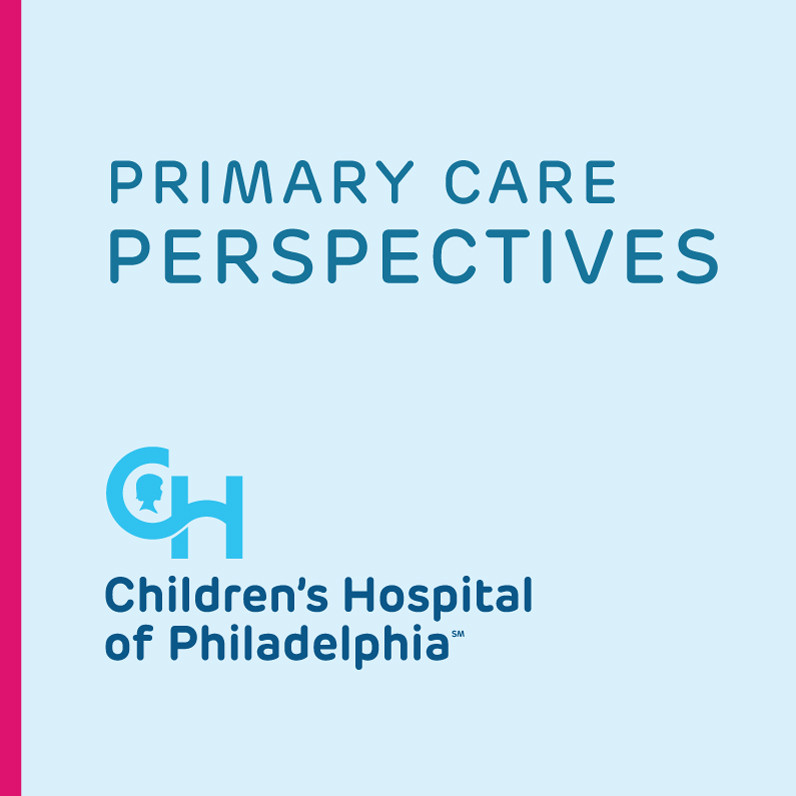
161K
Downloads
208
Episodes
Listen in as Katie Lockwood, MD, a primary care pediatrician at Children’s Hospital of Philadelphia, discusses hot topics in primary care with CHOP subject-matter-experts as they weigh in on issues affecting the daily practice of pediatricians. This podcast is for general informational and educational purposes only and is not to be considered as medical advice for any particular patient. Clinicians must rely on their own informed clinical judgment in making recommendations to their patients. ©2017 by Children’s Hospital of Philadelphia, all rights reserved.
Episodes
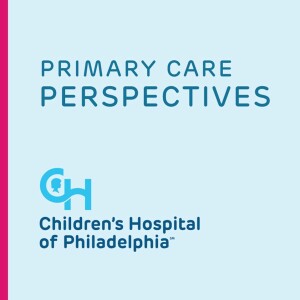
Wednesday Jul 13, 2022
Primary Care Perspectives: Episode 128 Climate Change and Children’s Health
Wednesday Jul 13, 2022
Wednesday Jul 13, 2022
Climate change has many health effects, yet doctors and patients don’t routinely discuss this topic. Harleen Marwah, MD, MS, a pediatric resident at Children’s Hospital of Philadelphia who is the founder of Medical Students for a Sustainable Future,provides an overview of the many ways climate changes affects children’s health, including prenatal health and mental health. Presented with overwhelming information about climate change, doctors may struggle to know how to put helpful steps into practice. Dr. Marwah discusses ideas for how pediatricians can incorporate anticipatory guidance and screening questions related to climate change into practice,with the goal of helping families navigate the changing environment; how doctors can participate in advocacy; and the one step every doctor, no matter how busy,can take today to help address climate change. This podcast is for general informational and educational purposes only and is not to be considered as medical advice for any particular patient. Clinicians must rely on their own informed clinical judgment in making recommendations to their patients. ©2022 by Children's Hospital of Philadelphia, all rights reserved.
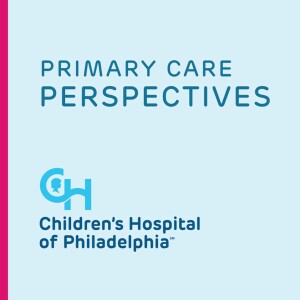
Monday Jun 27, 2022
Monday Jun 27, 2022
How can a primary care physician be sure their patient’s oral allergy syndrome (OAS) is not another type of allergy that may require more aggressive management? Katie Kennedy, MD, attending physician, Division of Allergy and Clinical Immunology, Children’s Hospital of Philadelphia, discusses: how to get a history to distinguish between OAS and IgE-mediated food allergies and seasonal/environmental allergies; the importance of pollen patterns in your region and a review of cross-reactive foods; why kids with OAS react differently to raw and cooked food (raw apples vs. apple pie); whether to recommend antihistamines; differentiating between contact rashes (such as from strawberries and tomatoes) and OAS; how to evaluate whether the child may be at risk for systemic reaction (and should carry epinephrine); can a child outgrow OAS; when to refer to a pediatric allergist, plus a review of the treatments the allergist might suggest; and more. Published June 2022. This podcast is for general informational and educational purposes only and is not to be considered as medical advice for any particular patient. Clinicians must rely on their own informed clinical judgment in making recommendations to their patients. ©2022 by Children's Hospital of Philadelphia, all rights reserved.
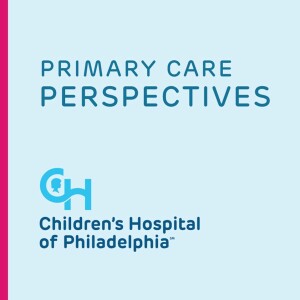
Friday Jun 03, 2022
Friday Jun 03, 2022
In Philadelphia, sleep-related deaths (including SIDS, accidental suffocation, and unknown cause) are the second-highest cause of infant mortality, after prematurity. Two pediatricians, Roy Hoffman, MD, MPH, Medical Director, Fatality Review Program, Philadelphia Department of Public Health, who sees patients at a health department-run community health center (Health Center #6), and Stacey Kallem, MD, Director, Division of Maternal, Child, & Family Health at Philadelphia Department of Public Health, provide an overview, including: incidence and factors; racial-ethnic disparity; a review of barriers to safe sleep and ideas for effective counseling for prevention; ways to help parents get support, including for lactation and smoking cessation; genomic sequencing and other research into medical causes for sleep-related deaths; practical tips to share with parents; and more. This podcast is for general informational and educational purposes only and is not to be considered as medical advice for any particular patient. Clinicians must rely on their own informed clinical judgment in making recommendations to their patients. ©2022 by Children's Hospital of Philadelphia, all rights reserved.
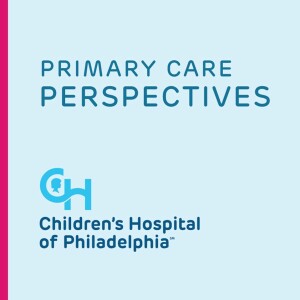
Monday May 16, 2022
Primary Care Perspectives: Episode 125 - Emergency Room or Not?
Monday May 16, 2022
Monday May 16, 2022
Parents worry when a child hits their head. This podcast will help inform the important decisions you need to make as a primary care provider, including whether to send them to the emergency room. Daniel Corwin, MD, MSCE, an emergency medicine physician and researcher at Children’s Hospital of Philadelphia, discusses acute (less than 24 hours) head trauma in otherwise healthy children, reviewing: the 6 criteria for each age group; why criteria for children younger than 2 are different (and the reassuring research behind the criteria); severe injury mechanisms; how to advise parents about keeping the child awake and what to watch for; the 9 features of the visio-vestibular exam; changes in concussion management and “return to normal” criteria; when to refer to a concussion specialist; and more. This podcast is for general informational and educational purposes only and is not to be considered as medical advice for any particular patient. Clinicians must rely on their own informed clinical judgment in making recommendations to their patients. ©2022 by Children's Hospital of Philadelphia, all rights reserved.
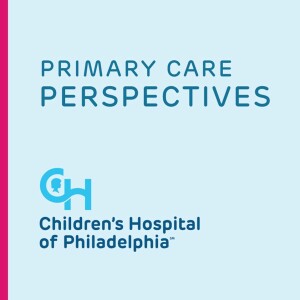
Friday May 06, 2022
Friday May 06, 2022
One in 4 children will have an episode of chronic pain before they reach adulthood, and kids with chronic pain are 3 times as likely to suffer anxiety or depression. How can primary care pediatricians help de-stigmatize the role of psychology in treatment for chronic pain? Jessica Collins, PsyD, and Christina Holbein, PhD, psychologists who run Comfort Ability workshops at Children’s Hospital of Philadelphia for kids with chronic pain, discuss: common diagnoses that come with chronic pain and discomfort; evidence-based interventions for chronic pain, including the role of cognitive behavioral therapy; differences in reporting of pain and discomfort based on culture and race, and how language barriers affect reporting; how to recognize and address bias in pain management referrals and suggestions for how to help families overcome barriers to resources; a review of CHOP resources for chronic pain, including Comfort Ability; and more. This podcast is for general informational and educational purposes only and is not to be considered as medical advice for any particular patient. Clinicians must rely on their own informed clinical judgment in making recommendations to their patients. ©2022 by Children's Hospital of Philadelphia, all rights reserved.
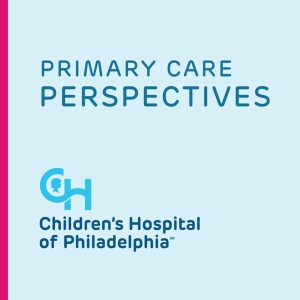
Friday Apr 08, 2022
Primary Care Perspectives: Episode 123 - Inequities in Chlamydia Screening
Friday Apr 08, 2022
Friday Apr 08, 2022
Chlamydia is the most commonly reported bacterial disease in the U.S., and half of the 1.8 million cases reported in 2019 were in youth. A recent publication by Kenisha Campbell, MD, MPH, and Sarah Wood, MD, MSHP, adolescent medicine physicians at Children’s Hospital of Philadelphia, showed providers are much more likely to screen Black adolescent females for chlamydia than white females. In a review of their study, the two doctors discuss how to address biases as individual providers and as practices or systems, and: a review of chlamydia screening guidelines, prevalence of asymptomatic cases, and effects of untreated infections; the recently modified CDC treatment guidelines, with doxycycline now preferred; when to still consider using azithromycin; when to refer to adolescent medicine; and more. This podcast is for general informational and educational purposes only and is not to be considered as medical advice for any particular patient. Clinicians must rely on their own informed clinical judgment in making recommendations to their patients. ©2022 by Children's Hospital of Philadelphia, all rights reserved.
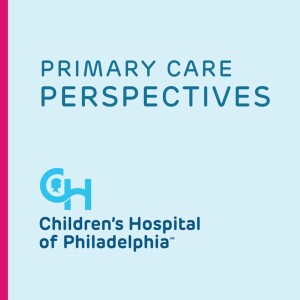
Friday Apr 01, 2022
Primary Care Perspectives: Episode 122 - Updated Developmental Milestones
Friday Apr 01, 2022
Friday Apr 01, 2022
Less than a quarter of children with developmental disabilities receive early intervention services before age 3. The recent update to the “Learn the Signs: Act Early” guidelines is a step toward more children and families getting help sooner. Kate Wallis, MD, MPH, a developmental behavioral pediatrician at Children’s Hospital of Philadelphia, reviews: how and why the changes were made; how evaluating milestones when 75% of the age group is meeting them (rather than the previous rate of 50%) affects the wait-and-see approach; why it was important to add milestones for the 15- and 30-month visits; how the milestones may be helpful to parents; and more. This podcast is for general informational and educational purposes only and is not to be considered as medical advice for any particular patient. Clinicians must rely on their own informed clinical judgment in making recommendations to their patients. ©2022 by Children's Hospital of Philadelphia, all rights reserved.
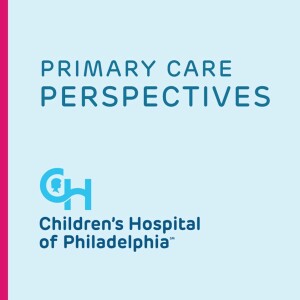
Wednesday Mar 16, 2022
Primary Care Perspectives: Episode 121 - When Social Skills Are a Struggle
Wednesday Mar 16, 2022
Wednesday Mar 16, 2022
Friendships and social bonds are integral to children’s health. How can a pediatrician help those struggling with social skills? Emily DePaul, BS, MPH, MA, who is a clinical research coordinator for the PriCARE Parenting Program and runs group social skills training for children with autism spectrum disorders (ASD), provides an overview of the importance of social skills and possible diagnoses in children who have delays or deficits (consider ADHD and anxiety, in addition to ASD). She explains group social skills training, why these programs are valuable, and how a caregiver or pediatrician can find them; and provides tips and real-world advice pediatricians can use in practice (for example, how to help with issues like volume control and personal space, simple coping strategies, and how to encourage “perspective-taking”). If you’re searching for reasons to be positive and hopeful, hearing DePaul will help: A believer in social skills training at a very young age, she has received funding to start a social skills program (called First Friends) for toddlers and preschoolers. And her description of the resiliency of the ASD children in her groups during the pandemic – they had to do group social skills training on Zoom! – is inspiring. Published March 2022. This podcast is for general informational and educational purposes only and is not to be considered as medical advice for any particular patient. Clinicians must rely on their own informed clinical judgment in making recommendations to their patients. ©2022 by Children's Hospital of Philadelphia, all rights reserved.
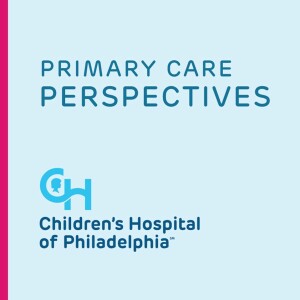
Tuesday Feb 22, 2022
Primary Care Perspectives: Episode 120 - Evaluating Neutropenia in Primary Care
Tuesday Feb 22, 2022
Tuesday Feb 22, 2022
How should a primary care physician evaluate neutropenia, and decide when it’s time to worry? Kandace Gollomp, MD, pediatric hematologist, Children’s Hospital of Philadelphia, discusses: tips for evaluating a CBC with differential; absolute neutrophil count (ANC) parameters for mild/moderate/severe neutropenia; when to worry about increased risk of infection, both in previously well children and in those with risk factors; a review of risk factors; lymphopenia, granulocytopenia and agranulocytosis and how they are different; benign ethnic neutropenia; post-infectious neutropenia and when you should re-check the CBC; when an infectious history should raise a red flag; when to order a peripheral smear or refer a patient to hematology for bone marrow biopsy or other evaluation; and more. Published February 2022. This podcast is for general informational and educational purposes only and is not to be considered as medical advice for any particular patient. Clinicians must rely on their own informed clinical judgment in making recommendations to their patients. ©2022 by Children's Hospital of Philadelphia, all rights reserved.
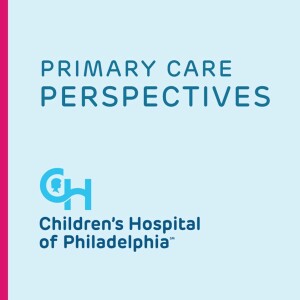
Thursday Feb 03, 2022
Primary Care Perspectives: Episode 119 - Primary Care in the Opioid Epidemic
Thursday Feb 03, 2022
Thursday Feb 03, 2022
Neonatal abstinence syndrome (NAS) and neonatal opioid withdrawal syndrome (NOWS) have skyrocketed as a result of the ongoing opioid epidemic. Celina C.S. Migone, MD, attending neonatologist, CHOP at Einstein Montgomery, discusses inpatient management of NAS and NOWS, including a new scoring system (replacing the Finnegan) and a move away from pharmacologic management (morphine dosing), and how the changes have had downstream effects that may require a new approach to supporting babies and families in primary care. She reviews: withdrawal symptoms providers may see; which substances are safe for breastfeeding and which are contraindicated; plans of safe care, which are begun during pregnancy and should be in place for a year after the baby is born; developmental monitoring; the CHOP NAS/NOWS inpatient clinical pathway and why it’s helpful to outpatient providers; and more. Published February 2022. This podcast is for general informational and educational purposes only and is not to be considered as medical advice for any particular patient. Clinicians must rely on their own informed clinical judgment in making recommendations to their patients. ©2022 by Children's Hospital of Philadelphia, all rights reserved.
